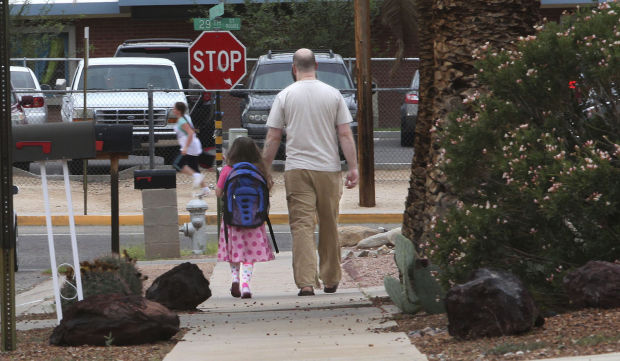Talking with children about stranger danger is a sensitive matter because parents want to make sure their children are aware but they also don’t want to scare them, said Ju’Riese Colon, Executive Director of Outreach for the National Center for Missing and Exploited Children.
“We want kids to be able to walk around and play without fearing they are going to be harmed or abducted,” she said. “But it’s really important that parents talk to their children about these types of things when they arise.
“It’s something that can happen anywhere, in any city big or small. It’s about safety — making sure kids are safe at home, at school and anywhere in between.”
To help with that, the National Center for Missing and Exploited Children developed a program called Kidsmartz that relies on four basic safety rules that parents can share with their children:
- Check first before doing anything, before going anywhere or before accepting anything. In examining more than 11,000 attempted abduction reports over the last decade, the National Center for Missing Children found that suspects most often offered children a ride or candy or money. Suspects were also known to ask the child a question, or to use an animal to lure a child by either asking for help to look for a pet or offering to show one.
- Take a friend. There is safety in numbers and whether kids are playing at the park or if they're walking somewhere, it's important they're with someone.
- Tell people “no.” Children have been brought up to respect their elders and naturally they want to be helpful, but if they don’t want to do something, if they don’t want to go with someone, they should know they have a right to say "no."
- Tell a trusted adult. If a child feels uncomfortable or confused or is asked to go somewhere, a trusting adult will help the child make a good decision. Depending on the situation, trusted adults can be a parent, a teacher, a police officer or even a store clerk with a name tag.
The conversation is especially important for children who will be walking to or from school.
The NCMEC study found that attempted abductions happen more often when a child is going to and from school or school-related activities.
The conversation leading into those rules could sound something like: “I’m your mom/dad/aunt/uncle and I want to make sure you’re safe. Here are some ways you can keep yourself safe …,” Colon said.
Colon encourages role playing to allow the message to sink in — a study by the National Center for Missing and Exploited Children found that a common pattern with the children who escaped their would-be abductors is that the child did something proactive like yelling to draw attention, running or physically pulling away, as opposed to being passive or polite.
In addition to role playing, it is also important to talk about the fact that strangers don’t necessarily look like the villains on TV and that the nice-looking man asking for help to find a lost puppy is indeed a stranger.
“The idea of a stranger is not something a child can really grasp because anyone can be a stranger,” Colon said. “And it doesn’t take much time for you not to be a stranger anymore.”





